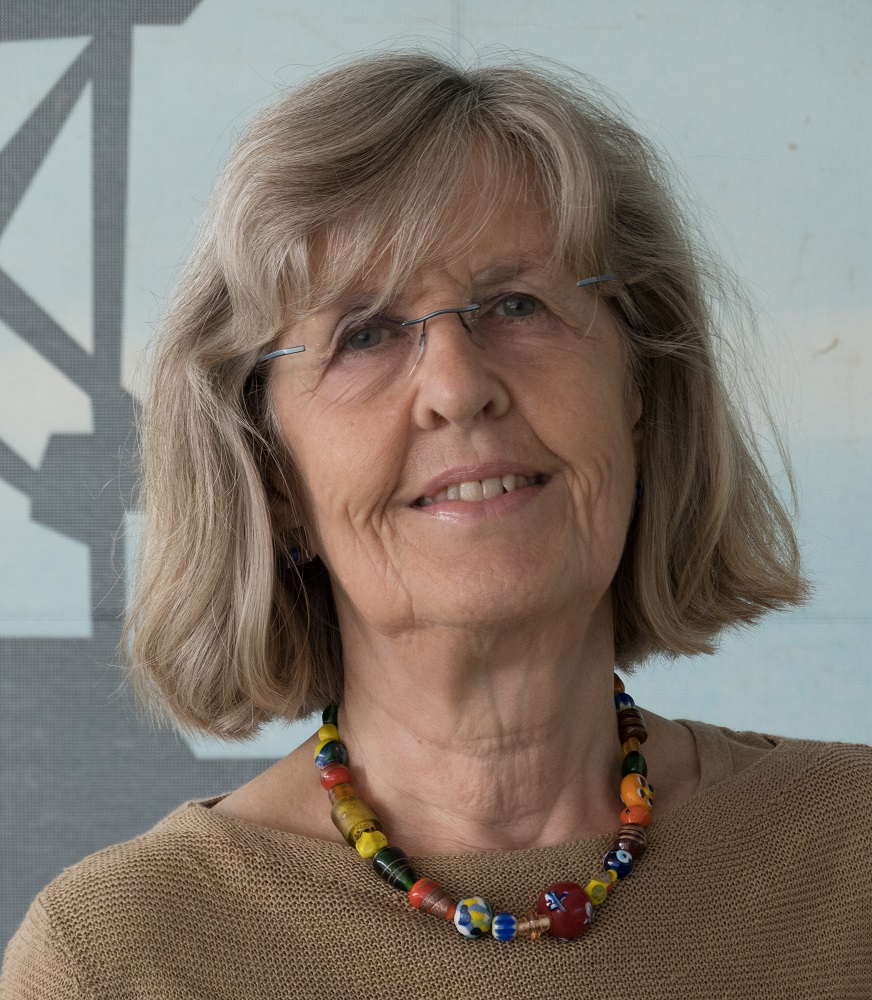‘In Rotterdam, a pioneering mentality prevailed’
Cornella Visser-Mol belonged to the first generation of Rotterdam medical students. As a 'part-time pensioner' she is far from finished with her profession: geriatrics. 'Medicine is more than just technique.'
Cornella Visser-Mol was only 17 years old when she enrolled in medical school in 1966. She belonged to the very first generation of medical students in Rotterdam. ‘I was immediately struck by the momentum of the information meeting. In other cities there were long waiting periods for the internships, so the study took seven years or more. In Rotterdam they said: we're going to do it in six years. You could tell that the founders has a new outlook on the study. A pioneering mentality prevailed.'
Did you see that mentality reflected in the lessons?
Certainly, I remember very well that in the first week a patient immediately showed up in the lecture hall. We didn't have to study endless amounts of theory first; there was an immediate focus on practice. I am also thinking of the genetics exam in the first year. That was so incredibly complicated. I don't remember exactly how it went down, but it could be that we got it all for free. That's part of it too: pioneering is about trial and error.
What moments from your student years have stuck with you?
The suicide of a fellow student in our second year of study made a big impression. And I have never forgotten an incident during my internship in gynecology. It was on a weekend and a pregnant woman was admitted whose baby was in a transverse lie. Despite the caesarean section - which I was allowed to assist with - the child did not make it. I can still see the father walking around with his camera: he wanted to see and photograph his stillborn son, but he was not allowed to. That made me very uncomfortable, that's not how it should be, I thought at the time.
How did this event shape you as a doctor?
It stayed with me for some time. I hope that these people, who were 'migrant workers', received follow-up care through the family doctor. There was no room for that in the hospital. It made me realize that medicine is more than technology. I realized how important it is to involve the patient and family in the care: today's shared decision making. I also realized that the hospital was not the place for me to gain more clinical skills after I got my degree. It was too transient for me.
So where did you end up after your graduation?
It turned out to be two instructive years at the Rotterdam Municipal Nursing Service. Now you would call that geriatric rehabilitation. After the birth of my oldest child, I worked for 16 years as a consulting physician. In 1990 I returned to geriatrics.
What attracts you to the specialty of geriatrics?
It is a very broad medical profession. You encounter all diseases and disorders. What also appeals to me are the long-term contacts with patients. We take care of the whole person and the circle of people around them as a multidisciplinary team. We provide tailor-made care. That also includes end-of-life conversations. We talk about dying with dignity. Palliative care is an essential part of the work of a specialist in geriatric medicine. From rehabilitation, I know that a lot is possible, but as a doctor you also have to be modest. By the time of my retirement, I saw the call for SCEN physicians. I had experienced myself how much support you can have from a SCEN doctor, so then I signed up for that.
That must be a special role.
It is. I experience many special moments. Part of my job is to visit patients who have requested euthanasia. As a health care professional, it is then your job to immerse yourself in their lives. In these conversations, . In these conversations, people take stock of their lives. I have learned many life lessons through these conversations.
You have now been in geriatric medicine for over 30 years. Has much changed in your profession?
The profession has become incredibly professional. In the beginning the profession was supported by one person: a jack-of–all-trades. Now Verenso is a flourishing professional association, of which I have been appointed an honorary member, to my surprise. We now have all kinds of guidelines and since 1989 the training program for of geriatric specialists.
But we are not finished yet. There are still more training places than candidates for the program. I would like to see that change. A compulsory internship in geriatric medicine, also at the Erasmus University, might help. I would also like to see a dementia-friendly society in which everyone can participate. How can we help people with cognitive disabilities to live with as much dignity as possible? If you are missing a leg, don't you also get a prosthesis and a wheelchair? I've always had the drive to advance my profession organizationally as well. There is still plenty to pioneer.
Cornella Visser-Mol is one of the speakers at the reunion of the 1966 Alumni, the first generation on Saturday, September 25, 2021. The theme is "Of old men, the things, which pass away ... More information: https://www.erasmusmc.nl/nl-nl/alumni/agenda-alumninetwerk
Cornella Visser-Mol
|
 |
Alumni in the spotlight
In the series 'Alumni in the spotlight' we speak with former students of Erasmus MC, the medical faculty of Erasmus University Rotterdam (EUR). How do they look back on their studies, what did they go on to do and how are they doing now? For more information on the Erasmus MC Alumni network, please visit: https://www.erasmusmc.nl/alumni
